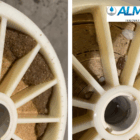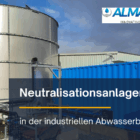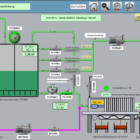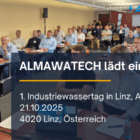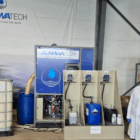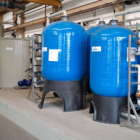Precipitation and flocculation plants are central systems in industrial wastewater treatment that aim to remove dissolved and colloidal impurities. These systems use chemical processes to convert dissolved substances into solid particles, which are aggregated by flocculation and then separated. Precipitation and flocculation systems are flexible and can be adapted to different loads and wastewater.
Table of contents
Technical background and procedures
Precipitation and flocculation plants consist of several process steps that can be varied depending on the composition of the wastewater and the target parameters. The most important steps include:
Neutralization precipitation: This technology is used when the wastewater has highly acidic or alkaline properties. The pH value of the wastewater is adjusted to a neutral value by adding acids or alkalis, which enables the precipitation of dissolved metal ions such as iron, aluminum or heavy metals. Neutralization produces insoluble hydroxides, which are then aggregated into larger particles by flocculation.
Sulphidic precipitation: Sulphidic precipitation is used for wastewater that contains high concentrations of heavy metals such as copper, zinc or lead. In this process, sulphide compounds (e.g. sodium sulphide) are dosed to convert the heavy metals into insoluble metal sulphides. These metal sulphides are stable and can be easily separated by flocculation and subsequent sedimentation or flotation. Sulphide precipitation is particularly effective in achieving low limit values for heavy metals in wastewater.
Heavy metal removal: Heavy metals are common contaminants in industrial wastewater, especially in the electroplating, metal processing and chemical industries. Precipitation and flocculation systems are designed to efficiently remove heavy metals in order to meet legal limits. In addition to neutralization and sulphide precipitation, precipitants such as iron or aluminium salts can also be used to convert heavy metals into poorly soluble compounds. These particles are then bound by flocculation to form larger flocs, which are removed by sedimentation or flotation.
Flocculation: How polymers work
Flocculation is a crucial step in precipitation and flocculation systems in which special flocculants or polymers are used to aggregate the small particles produced by precipitation into larger flocs. These polymers consist of long molecular chains that bind to the surfaces of the particles and cross-link them together.
There are different types of polymers that differ in their charge (cationic, anionic or neutral).
- Cationic polymers: These carry a positive charge and are particularly suitable for binding negatively charged particles in wastewater.
- Anionic polymers: These have a negative charge and are used to floc positively charged particles.
- Non-ionic polymers: These are neutral and act as bridging agents between particles of different charges.
Mechanism of flocculation
Polymers function through two main mechanisms:
- Charge equalization: Polymers neutralize the surface charges of the particles, which reduces the repulsive forces between the particles. This results in the particles coming closer together and forming larger flakes.
- Bridging: The long chain molecules of the polymers link several particles together to form stable flocs that can be separated by sedimentation or flotation. flotation can be easily separated by sedimentation or flotation.
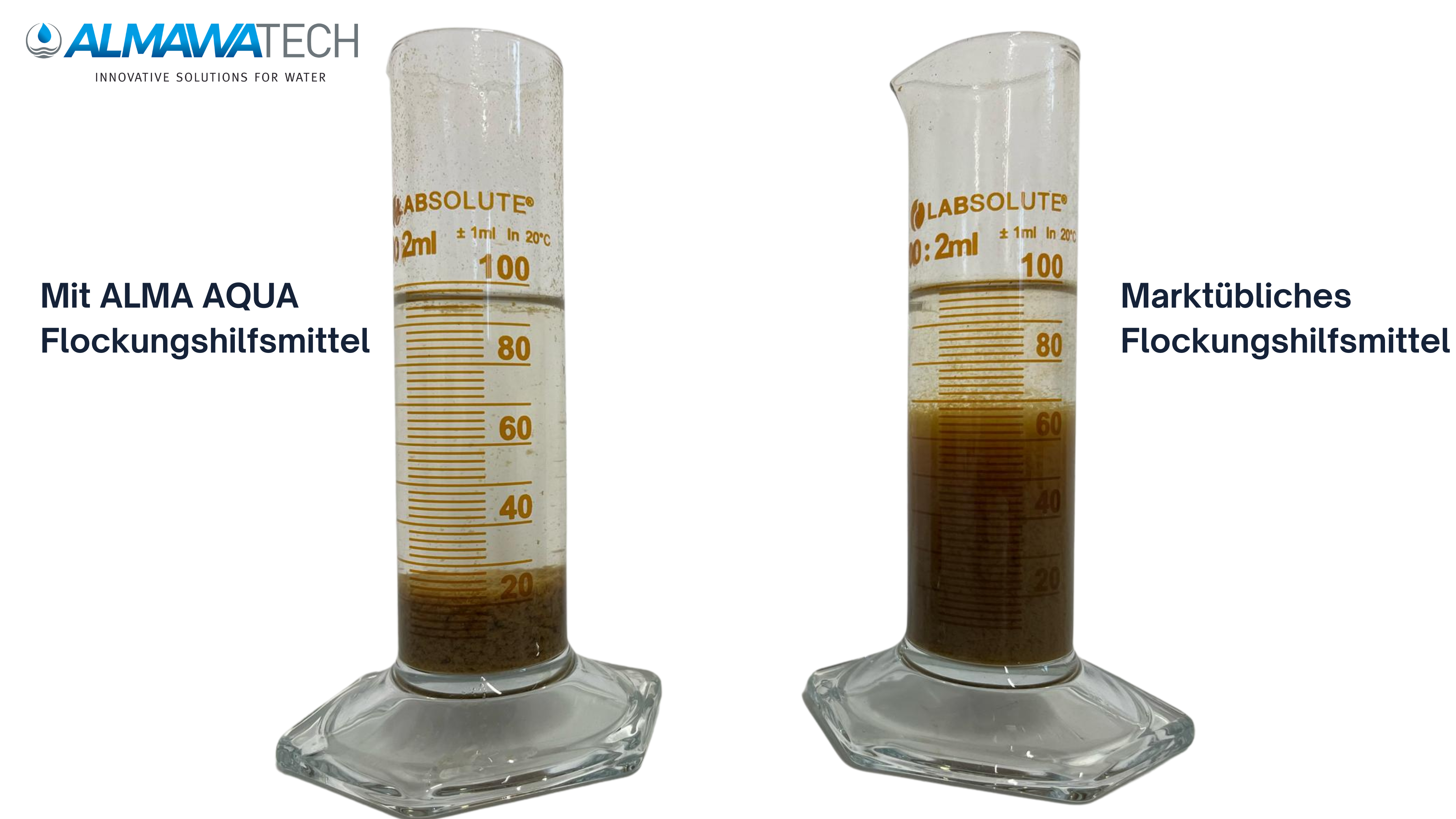
Photo: Comparison of two flocculants, on the left from the ALMA AQUA wastewater product range
Process engineering of precipitation and flocculation systems
In precipitation and flocculation plants, the wastewater is first mixed with the appropriate precipitants and flocculants in reaction tanks. Agitators and special pipe loops are used to ensure optimum mixing and reaction time. After the precipitants have been added, the flocculant settles and forms larger particles that are easy to separate. These flocs are separated either by sedimentation, flotation or filtrationdepending on the specific requirements and the wastewater content.
Application of ALMAWATECH products: ALMA CHEM MCW and ALMA NeoDAF
ALMA CHEM MCW is a specially developed CP system (chemical-physical system) from ALMAWATECH, which is suitable for the efficient implementation of precipitation and flocculation. It enables the precise dosing of precipitants and flocculants and can be flexibly adapted to different wastewater compositions. The ALMA CHEM MCW uses the latest load-proportional dosing technology and is designed for easy integration into existing systems to ensure optimum floc formation and particle separation.
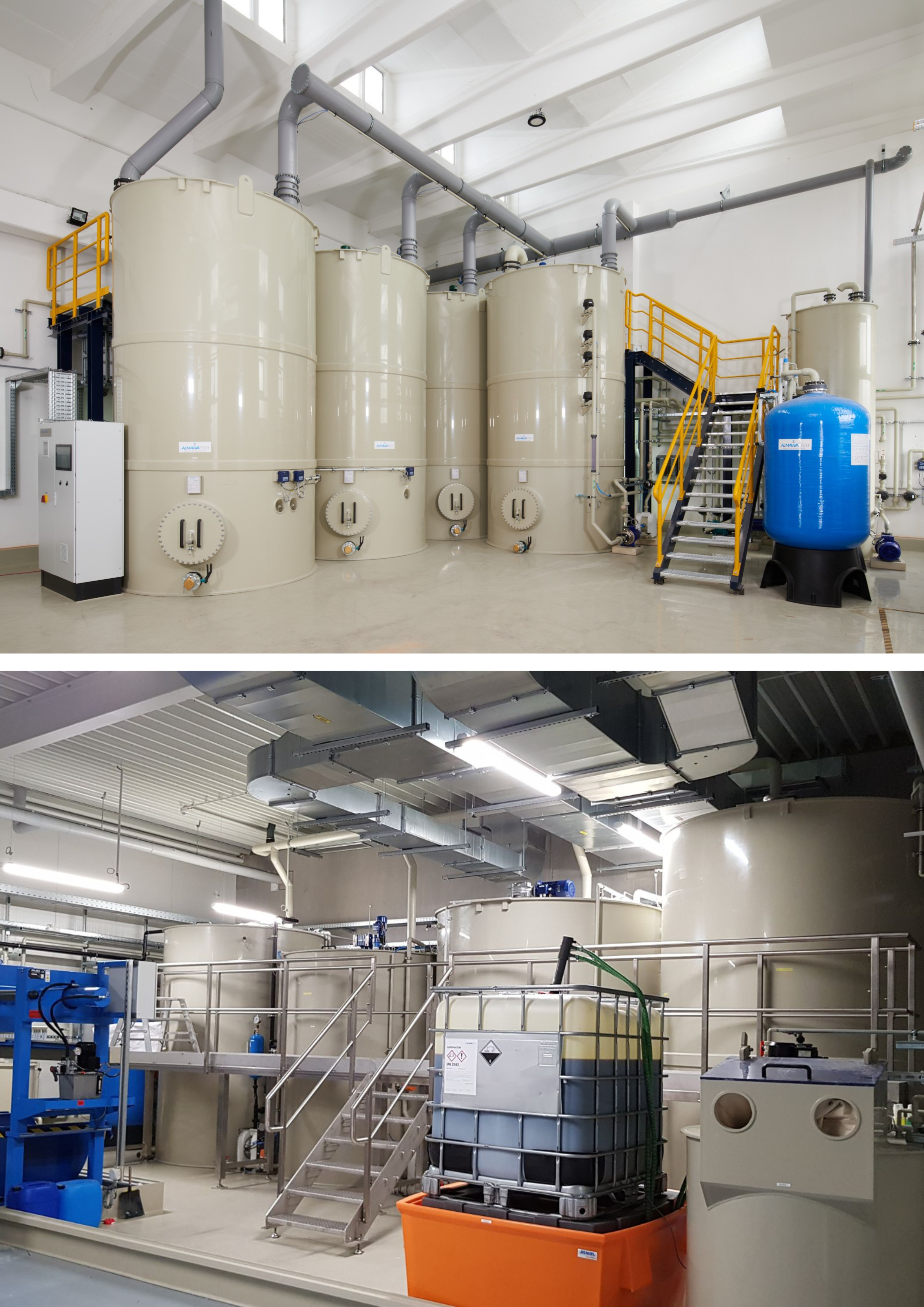
Photo: CP system ALMA CHEM MCW for the elimination of heavy metals, AOX, hydrocarbons and cyanides
ALMA NeoDAF is a highly developed flotation plant specially designed for the separation of flocs and suspended solids. This system works according to the principle of dissolved air flotationin which the wastewater is saturated with air under pressure and then expanded. This creates fine air bubbles that attach themselves to the flocs and drive them to the surface, where they are skimmed off as sludge. The ALMA NeoDAF is particularly suitable for maximizing the efficiency of heavy metal and organic compound removal by providing precise control of the process parameters.
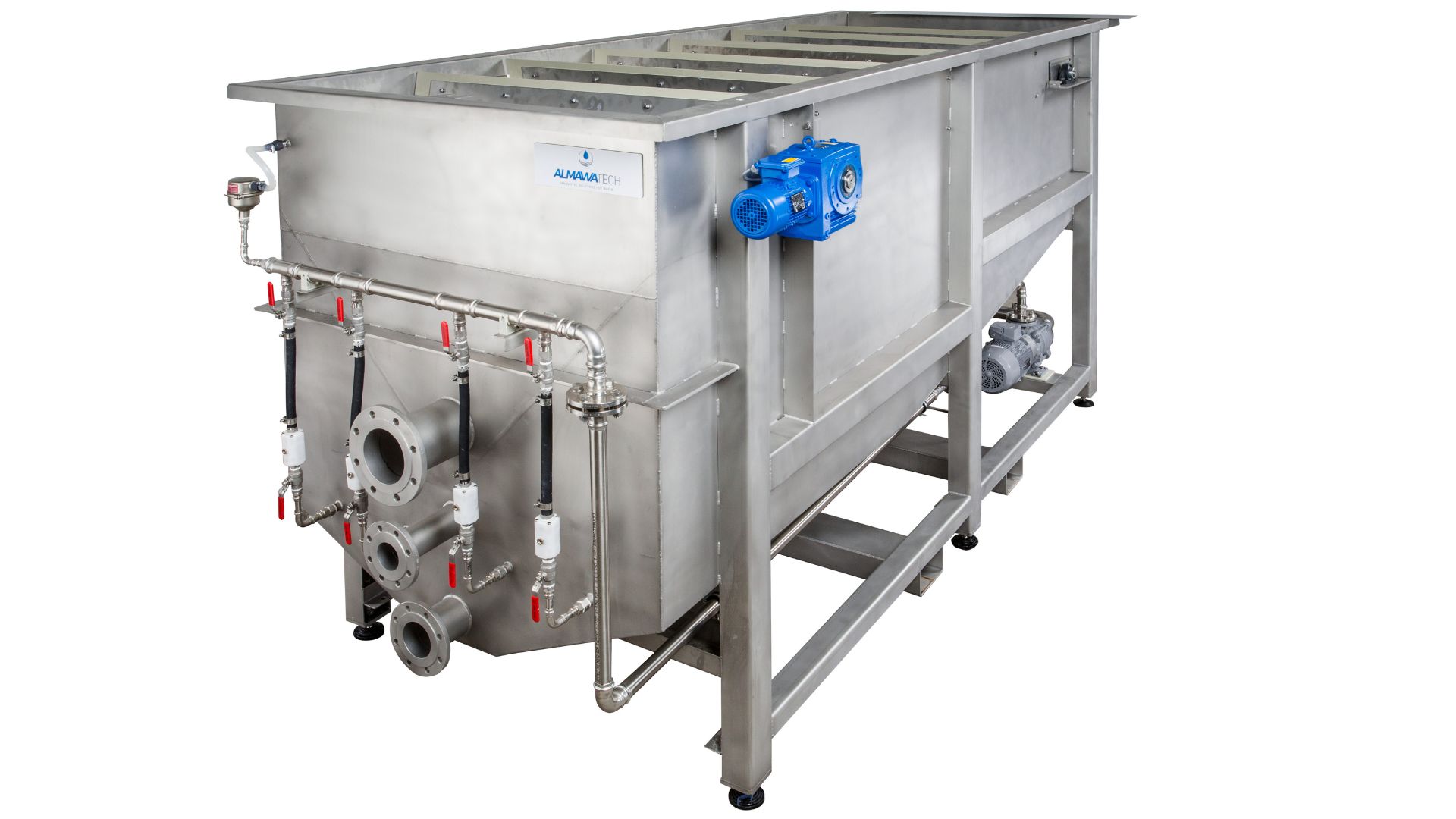
Photo: ALMA NeoDAF flotation plant
Conclusion
Precipitation and flocculation plants are indispensable systems in industrial wastewater treatment. They offer an effective way of removing dissolved and colloidal pollutants while complying with legal limits. By combining neutralization precipitation, sulphide precipitation and efficient flotation systems such as the ALMA NeoDAF, precise and flexible wastewater treatment can be guaranteed. ALMAWATECH offers customized solutions and products such as ALMA CHEM MCW and ALMA NeoDAF ALMAWATECH offers reliable and innovative technologies for various industrial requirements.
For further information on our products, please feel free to contact us at any time!


